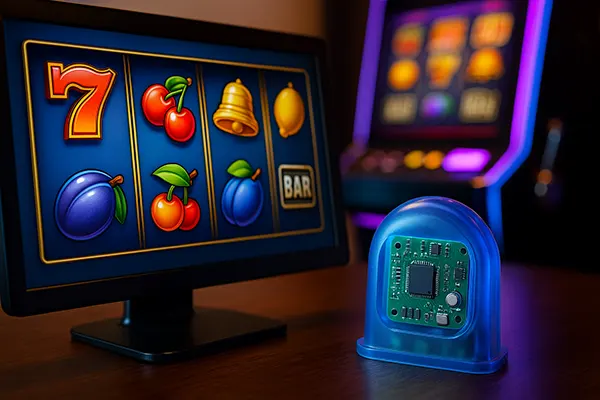How RNG Works in Slots: The Reality of Randomness in Online Casinos

Random Number Generators (RNGs) are the technological backbone behind the fair and unpredictable nature of online slot games. While the bright visuals and themes are what players see, the true magic occurs behind the scenes through complex algorithms. Understanding how RNGs function reveals how fairness and chance are preserved, eliminating any misconceptions about rigged outcomes.
The Core Mechanics of RNG in Online Slots
At its essence, RNG is a computer algorithm designed to generate sequences of numbers without any pattern. In the context of slots, each number corresponds to a specific reel symbol, and the results are produced in real time the moment a player hits the “spin” button. These numbers are not stored or predicted; each outcome is independent of the last.
Modern online casinos utilise what is known as a pseudo-random number generator (PRNG). Although the sequences it produces are deterministic and based on initial values called seeds, the sequences are so complex and variable that for practical purposes they are indistinguishable from true randomness. This ensures consistent unpredictability, a cornerstone of fair play.
The randomness provided by PRNGs is subject to extensive auditing by independent testing agencies. These bodies assess whether outcomes over millions of spins fall within statistical expectations, ensuring fairness and transparency. This auditing process forms part of the licensing requirements imposed by respected regulatory bodies like the UK Gambling Commission or the Malta Gaming Authority.
Testing and Certification of RNG Systems
To maintain credibility, online casinos must work with certified software providers whose RNG systems undergo third-party testing. Firms such as eCOGRA, iTech Labs and GLI evaluate algorithms against international standards, checking whether the distributions of outcomes are genuinely random and not biased in favour of the house.
The certification process also examines the frequency of payout rates and verifies the correct implementation of Return to Player (RTP) percentages. These figures, although theoretical over the long term, offer insight into how much players might expect back from their wagers. All certified slots disclose this information transparently within their game rules or paytables.
Once certified, RNG systems are regularly retested to confirm they continue functioning correctly. If a developer modifies a game or releases a new version, the entire RNG framework must undergo a new assessment. This ensures that ongoing game integrity is preserved for the protection of the player.
Dispelling Common Myths About Slot Randomness
One of the most persistent myths surrounding slots is that they “remember” past spins or adjust outcomes based on recent player activity. In reality, the RNG does not retain memory or adapt to patterns. Each spin is an isolated event governed by a fresh sequence generated in that instant, unaffiliated with the previous result.
Another misconception is that certain times of day offer better odds of winning. This is not the case. The PRNG runs continuously, often generating thousands of number combinations per second, even when no one is playing. When a spin is initiated, the RNG simply stops at a particular number in that sequence, which defines the outcome.
Finally, players may believe that casinos can “tweak” results to minimise payouts. Reputable operators cannot and do not have access to alter RNG output. Regulatory oversight and software separation mean casinos only facilitate the games, while the developers – under licensing and audit constraints – handle the integrity of the randomisation process.
The Role of RTP and Volatility in Game Perception
RTP and volatility are often mistaken for mechanisms that affect randomness, but in truth, they are statistical representations of the game’s design. RTP is the average percentage of wagers a player can expect to receive back over millions of spins, while volatility reflects the risk level: whether a game pays out smaller wins frequently or large wins rarely.
Neither RTP nor volatility manipulates the randomness of outcomes. Instead, they are the result of the mathematical models underlying each game, aligned with the sequences produced by the RNG. The illusion of “hot” or “cold” games is merely human pattern recognition in action, not a reflection of altered probabilities.
Understanding these concepts helps players better manage expectations and avoid superstitions. It reinforces the notion that while strategies can enhance enjoyment, they cannot influence the fundamental randomness built into every certified slot.

Regulatory Oversight and Player Protection
Regulatory authorities play a critical role in enforcing RNG fairness. In the United Kingdom, the Gambling Commission requires all slot games to be tested and approved before being offered to players. Similar requirements exist across the EU, Canada, and many other jurisdictions where online gambling is permitted.
These organisations maintain strict standards regarding RNG testing, software integrity, and transparency. Operators found in breach of these standards face heavy penalties, loss of licences, or legal action. As a result, licensed online casinos take RNG compliance extremely seriously to maintain their reputation and legality.
Players themselves can also verify game fairness. Certified games often carry the logo of the testing agency, and additional information can typically be found in the game menu or provider’s website. In cases of dispute, players can file complaints directly with the regulator or the independent testing lab responsible for the game’s certification.
Why RNG Matters for Trust in Online Gaming
The presence of a tested RNG ensures that online gaming is not only entertaining but also fundamentally fair. It supports player trust, which is vital in an environment where digital interactions dominate and physical verification is absent. Without a reliable RNG, the integrity of slot games would collapse.
Moreover, RNG-based fairness contributes to the long-term sustainability of the online gambling industry. Operators and developers rely on transparency and accountability to attract and retain players who expect honest experiences. The technology that supports randomness is what ultimately fosters loyalty and market stability.
By demystifying how RNGs work and reaffirming their legitimacy, players are better positioned to enjoy online slots with confidence. Awareness of certification, auditing, and regulation empowers individuals to choose trustworthy casinos and engage responsibly.



